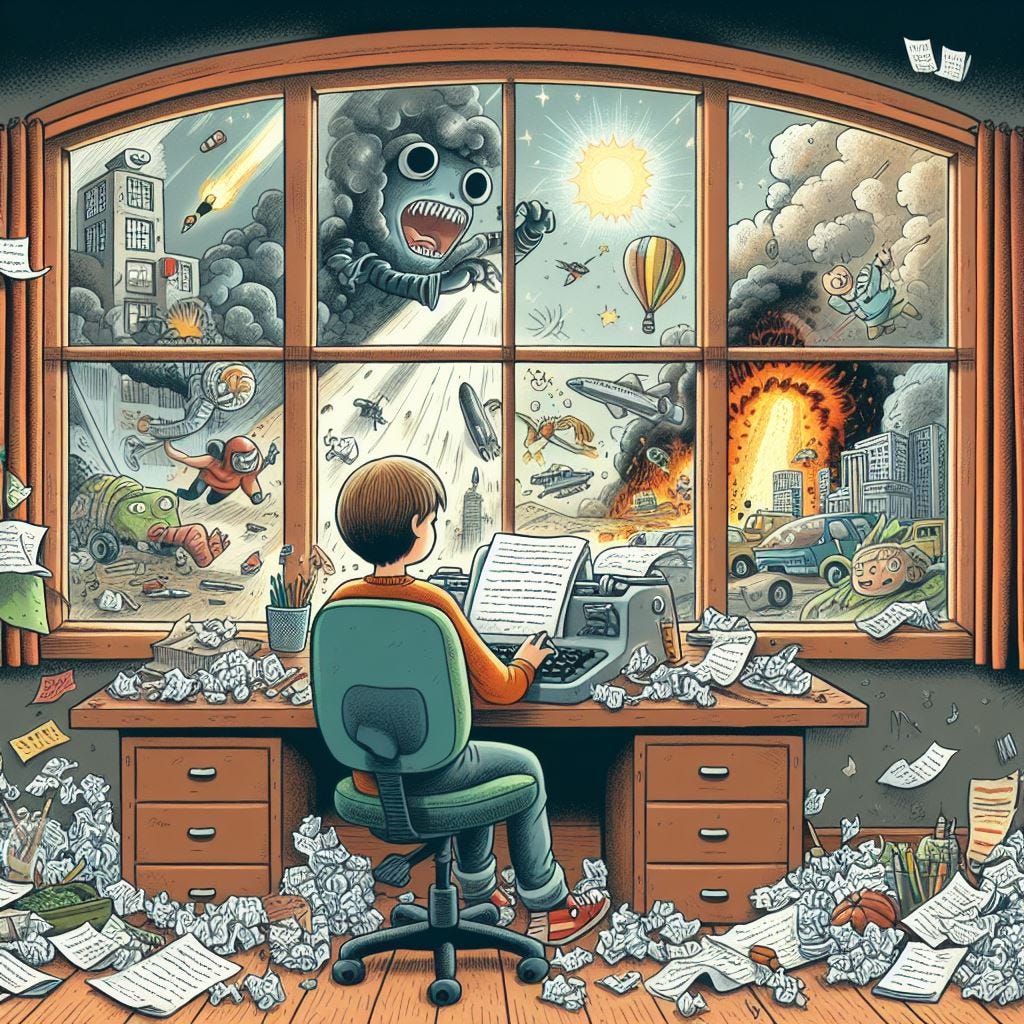Small Wisdom 3: Making everything material
Create a platform to transform your efforts and experiences into something greater
This is the third post in a short series of birthday-inspired reflections on “small wisdoms” I have learned over the past decade or two. You can read the first in the series on the personal and organizational power of gratitude here and the second on recognizing when you’re the weird one here.
“Nothing bad can happen to a writer. Everything is material.” — Philip Roth
Throughout my career, I’ve encountered moments that really tested my resilience and determination. Whether it was dealing with exhausting initiatives, toxic leaders and systems, or just immense pressure, the challenges have been real.
During moments or periods like these, it helped me to recall Philip Roth’s quote about writers—that nothing bad truly happens to them.
I first heard this quote from my father, a writer himself who faced an intense crucible at a young age, commanding a river boat squadron in combat during the Vietnam War. Then it was raising lots of children and supporting so many people and organizations, often while he was struggling to figure out where the money was coming from week-to-week.
My Dad loved how Philip Roth’s quote highlighted a writer’s opportunity to transform life events, good or bad, into writing that could transcend the individual and their personal experience.
Even if a writer is struck by misfortune, that same misfortune can form the basis of a poem, a script, an essay or more. Accidents can be transformed into comedy, adversity into learning, failures into triumphs of a different sort.
Using the lens of a writer gives you the chance to step back and view events as an observer, as input to another process or purpose. One that isn’t dependent on the failure or success of the individual events, but on what you do with them as a whole.
And you don’t need to be a writer to gain this benefit, though I’d certainly recommend developing a regular writing practice, whether for yourself or others.
The key is to build a mechanism or platform that can transform your challenges into “material” for something else.
Here are a few elements of a good platform:
Serves a greater purpose: You are looking to view your individual experiences as part of a bigger or longer term objective, so there’s much less riding on each experience. For example, if you can view your efforts to develop a product as just one attempt in serving a greater mission, or just one step in your development as a product manager, then you will be much more resilient.
Is related but diversified: You want your platform to connect easily to your work or your efforts, but at the same time you’re looking for the ability to transform failures into learning or success. For example, blogging about your experiences writing a novel is not very diverse, as it could suffer from similar risks. On the other hand, convening a meetup of aspiring novelists is less exposed to the same risks and provides more diverse benefits.
Connects you to others: One of the biggest traps when you are in midst of intense efforts or experiences is get stuck in your own head and to not reach out to others. A great “material” platform is one that naturally connects you to other people and their perspectives.
Shows your work in a good light: An effective “material” platform is one that disposes both you and other people to view your failures and successes in a positive light. For example, if you are sharing a chronicle of your experiences, would it be better to frame it as an expert’s journey or a learner’s journey?
For further brainstorming, it can also be helpful to try on a few different lenses for what your platform can focus on:
Teaching others: Your own failures and what you learned can create meaningful value for people facing similar challenges. Even when you’re in the midst of a challenging situation, you can reflect on how you would frame it and what you learned to gain some emotional distance from the situation.
Supporting others: Therapists and social workers can leverage their personal challenges to deepen their empathy and understanding of the people they serve. You too, can reflect on the groups you would be better able to connect to and help given your experiences.
Engaging or entertaining others: Speakers, comedians and all types of leaders use their personal stories to infuse authenticity into their work. Consider how your experience can help you demonstrate such authenticity and what audiences it might engage.
Become like water
Ultimately, you are looking to build on Bruce Lee’s imagery of water:
"When you pour water in a cup, it becomes the cup. When you pour water in a bottle, it becomes the bottle. When you pour water in a teapot, it becomes the teapot. Water can drip and it can crash."
Create a form to hold the “water” of your experiences and to generate the “material” for something even greater.
Don’t just let your experiences direct your life.
Create a container to transform them into something greater.


